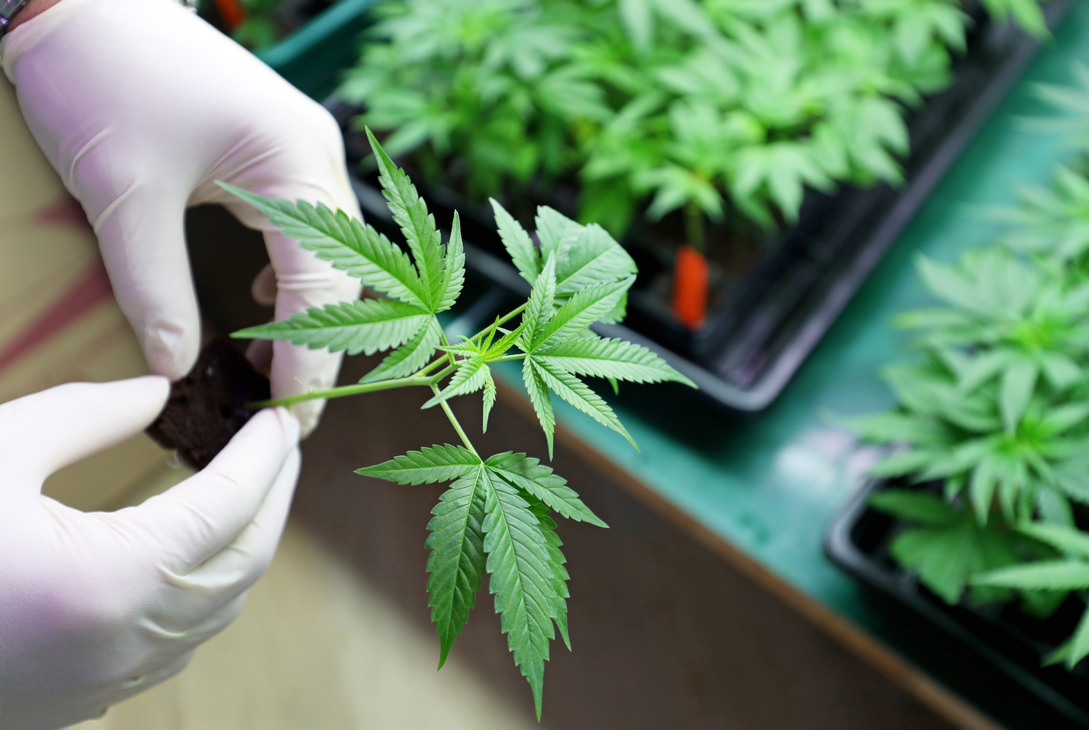In recent months, the debate over cannabis rescheduling has intensified as the Drug Enforcement Agency (DEA) shared its intent to reschedule cannabis from a Schedule I to a Schedule III drug. This recently came to a head on May 16, 2024 when the U.S. Department of Justice announced that the Attorney General submitted a notice of proposed rulemaking to begin the process towards rescheduling cannabis under the Controlled Substances Act (CSA). The Department of Justice explains that:
“Marijuana has been classified as a schedule I drug since Congress enacted the CSA in 1970. On October 6, 2022, President Biden asked the Attorney General and the Secretary of Health and Human Services (HHS) to launch a scientific review of how marijuana is scheduled under federal law. In light of HHS’ medical and scientific determinations…the Attorney General exercised his authority under the law to initiate the rulemaking process to transfer marijuana to Schedule III.”
U.S. Department of Justice
This move could significantly impact both medical research and patient care, particularly in the oncology field. Dr. Brooke Worster, a pioneering palliative care clinician and researcher and the Director of Supportive Oncology at Jefferson Health, views this policy shift as a critical step towards advancing the therapeutic use of cannabis—and in contributing to better research across the healthcare spectrum.
Dr. Worster has been at the forefront of integrating cannabis into cancer pain management. A graduate of Temple University School of Medicine and a fellowship-trained expert in palliative care and pain management from MGH Brigham and Dana Farber Cancer Center, Dr. Worster’s work addresses the urgent need for evidence-based guidance in medical cannabis. This desire to enact change in this field led Dr. Worster to become the Chief Medical Officer for EO Care, the market leader in clinically guided cannabis care.
For Dr. Worster, the reclassification of cannabis is long overdue, asserting:
“The data supports rescheduling. It should be a scheduled substance, but it isn’t something that has only harms and no medical path. Cannabis rescheduling will lift all restrictions on research. If we need better research, the government needs to make it not federally illegal to do so. I genuinely believe that, through rescheduling, we can change the narrative around the fear or hesitancy of speaking about cannabis in the medical setting.”
Dr. Brooke Worster
Learning about Medical Cannabis
Dr. Worster’s career trajectory is driven by her deep dedication to improving the quality of life for individuals with cancer. While cancer treatments—chemotherapy, radiation, surgery, targeted therapies—are undoubtedly beneficial in combating cancer, a majority of patients experience side effects. The CDC also suggests that 20-50% of cancer survivors experience pain in the years following their cancer treatments.
Managing these symptoms is essential for maintaining patient comfort, optimizing treatment outcomes, and improving quality-of-life. But when patients began asking Dr. Worster about utilizing medical cannabis for pain management, she felt unprepared to give them the answers they were searching for. She shares:
“Frankly, I was clueless. Most doctors have gotten no education or training around the science of cannabis. And, unfortunately, many doctors are not great at providing commentary or insight when they don’t feel fully centered in what the research supports.”
Dr. Brooke Worster
Her initial research into medical cannabis uncovered a commonly spread myth that serves to perpetuate stigma and confusion: the dichotomous view of cannabis as either a miracle cure or a harmful, devilish substance. She emphasizes that the reality is more nuanced:
“The biggest problem in using cannabis in a medical wellness sense is the lack of guidance and communication between patients, caregivers, and healthcare providers. However, these gaps can lead to cannabis misuse and an increased risk of side effects. With more transparency and guidance, patients can better navigate this space—and partner with their healthcare providers—to potentially find products that are helpful to them.”
Dr. Brooke Worster
To overcome and bridge existing gaps, Dr. Worster encourages patients and caregivers to advocate for themselves by asking their healthcare providers how to access cannabis safely. She believes that opening the door, and expressing curiosity, will most likely be met with a positive response. Even if your doctor isn’t sure, they can potentially look for a resource for you. Says Dr. Worster:
“Whatever you’re met with, part of self-advocacy and advancing the conversation around medical cannabis is just ripping the bandaid off and not feeling like you’re going to get in trouble or reported for it. Of course, I understand why people feel scared. For so long, there have been racial and ethnic disparities in policing. Cannabis-related arrests and incarcerations have disproportionately affected communities of color, creating a climate of fear and mistrust. I hope that with more local and national conversation about medical cannabis, we can start changing the message around medical cannabis use and work towards equitable access and informed, compassionate care for all patients.”
Dr. Brooke Worster
Lifting Restrictions on Research
Kate Robertson reports that the DEA has approved eight companies and 600 researchers for those companies to conduct research into the use of cannabis in medicine. But rescheduling cannabis would lift federal restrictions on research, enabling a more comprehensive understanding of the risks and benefits of medical cannabis.
So far, Dr. Worster has developed a research portfolio looking at different forms of cannabis and medical outcomes in both patients with cancer and other vulnerable populations, such as older adults, people with chronic diseases, and people living with diseases with intractable symptoms. She explains that:
“In a cancer patient population, the two areas where research supports its use are chemotherapy-induced nausea and vomiting—one of the most distressing symptoms for patients—and cancer- or treatment-related pain, such as neuropathic pain or localized pain from radiation burns. This is where the evidence is growing and points us in the direction of positive therapeutic benefit. Other areas are intriguing and signals point towards effectiveness. For example, patient-reported outcomes share that anxiety, appetite loss, and sleep disturbances can all be positively informed by medical cannabis. However, we don’t yet have enough data to make a determination.”
Dr. Brooke Worster
Rescheduling will provide an avenue for researchers to have more access to cannabis and patients who use cannabis in a less stigmatized setting, ideally providing insights that shape care far into the future.
EO Care: Clinically-Guided Cannabis Care
Dr. Worster’s interest in expanding her knowledge on medical cannabis for people with cancer and other illnesses eventually brought her to EO Care. Led by recognized healthcare, cannabis regulatory, and technology leaders and innovators, EO Care provides purpose-designed products, easy-to-use guidance tools, and affordable, expert care.
As EO Care’s Chief Medical Officer, Dr. Worster is at the forefront of changing the narrative around medical cannabis use for patients and healthcare entities. She shares:
“Through my role, I help socialize this idea among patient-facing healthcare systems, insurers, state governments, and others in this space—people that are curious and recognize that there is a gap. All too often I’ve seen medical cannabis get pushed away because people don’t know what to do with it and are scared to ask. People are thirsty for knowledge on how to feel more informed on the risks and benefits, but don’t know where to start. It can be overwhelming. We create these silos where I’ve seen patients have truly bad outcomes without connectivity and medical-based guidelines. At EO Care, we’re creating bridges and breaking down silos to provide more equitable access to medical cannabis care. We need to have conversations between stakeholders and create connectivity as an early priority.”
Dr. Brooke Worster
EO Care aims to offer resources and guidance that are often inaccessible to many, especially those in rural areas who lack access to specialty providers or people without the means to afford expensive consultations. Says Dr. Worster:
“From early in my career, I saw this as the most glaring barrier to good outcomes: we’ve created a system that does not make it easy for different populations to get the same access to care or even access to good care. I wholeheartedly believe that this needs to be a central point of this conversation. If we don’t think about how to improve equity and access, we will further perpetuate a system of ‘haves’ and ‘have-nots.’ This is especially true in cannabis care because it is expensive, not always available in a safe way, and has a history with the long-standing disparities in terms of racial equity, both in access and safety.”
Dr. Brooke Worster
To Dr. Worster, EO Care’s scalability is a particular focus for the future. Her goal is that cannabis care can be integrated into mainstream healthcare and provide medically-based guidance for cancer patients to safely access cannabis and understand if it’s right for them:
“There are some individuals that cannabis isn’t right for, but they deserve the chance to learn that for themselves. EO Care provides safe access so patients don’t feel that they have to rely on Google, Weedmaps, or the budtender at the dispensary who is not cleared to give you medically-based guidance. We want people going through cancer treatment to recognize that there is a helpful resource out there for them.”
Dr. Brooke Worster
The company also serves to advance awareness and knowledge within the clinician space. EO Care utilizes advanced tools, including AI, to educate and provide scientific data to clinicians. For healthcare professionals who are interested in incorporating cannabis care into their practice, especially to support older patients and cancer survivors, Dr. Worster encourages healthcare professionals to utilize resources such as EO Care’s library and state cannabis commissions to learn about safe cannabis use.
If you are a clinician looking for more information on EO Care and how to implement cannabis care for your oncology patients, check out this helpful “For Clinicians” guide.
cancer cancer care cancer treatment cannabis rescheduling EO Care interview medical cannabis oncology pain management palliative care
Last modified: May 30, 2024











